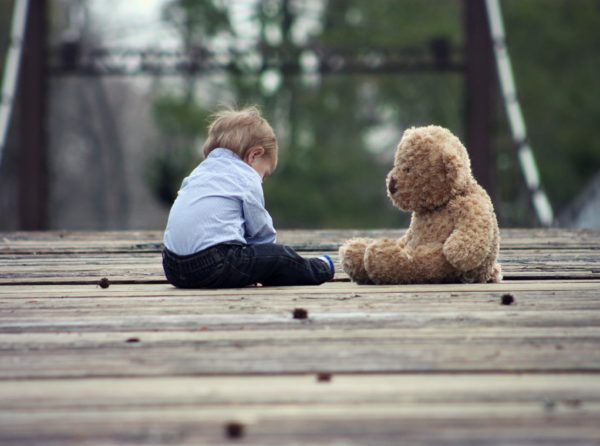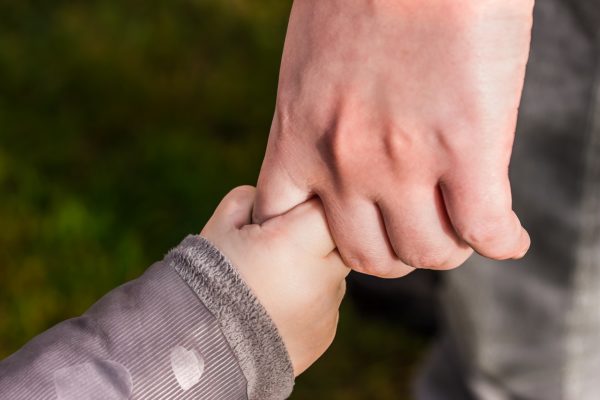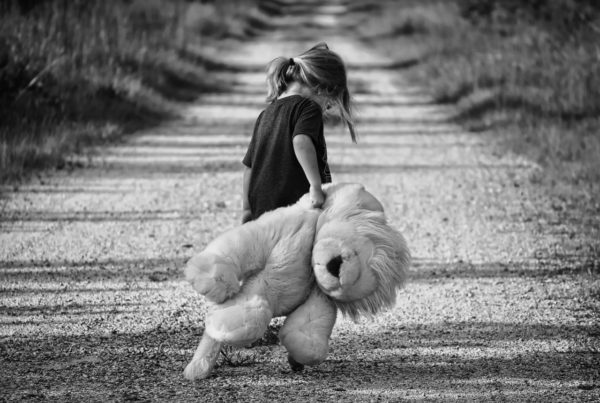Taking Care Of Your Children After Divorce
Thousands of children around the world experience the divorce of their parents each year. Children who go through a divorce may react very differently from another child, depending on their age, personality, and most importantly, the circumstance of the separation and divorce process. Each divorce directly has an impact on any child involved and many have initial reactions of shock, sadness, anger, and worry.

However, it is important to know that many children come out of divorce situations stronger, more tolerant individuals who are more aware of the world in front of them. There are some things that parents should do to help their children through this difficult or even “weird” time such as, having heated discussions or arguments away from the children, try not to let your problems affect your kids daily routine, keep therapy discussions outside of the home and try your best to keep both parents actively involved in the kids’ life.
Lastly, besides helping your children, adults too need support from their family members, friends, and professionals whom they make seek help. It is not recommended that parents seek help from their children. You can also learn more about child support in new jersey to better educate yourself. Continue reading to find out what exactly you can do for your child or children during a divorce.
Breaking the news
This is probably one of the hardest parts of the process and will come as a complete shock for your child or children. The earlier you break the news, the better. Hence, if you and your partner have decided on a divorce, it is important to let your kids know of the decision and why it has come to that tough choice. It would be best if both parents were there to break the news to your kids. As a parent, it is important that you remain calm instead of getting upset at them being upset. Practicing what to say can help a lot in tough times such as these. The main message you should be telling your child is that the divorce had nothing to do with them and that it has everything to do with the two parents. Often, children of divorced parents blame themselves, hence it is critical to give them reassurance. When dealing with younger kids, it is best to keep conversations and sentences short so they understand it in the simplest way possible.
How do I handle my child’s reactions?
If you thought that your child’s reaction would be a good and positive one, you are wrong. Most kids become significantly upset upon hearing the news that their parents are going to divorce or live apart. It is easier to know what your child is truly feeling if they are one to show their emotions, however, it is more challenging for those who hide their feelings, and the consequences of the news can lead to changes in mood and sleep patterns. Be prepared to answer tough questions that might not have the nicest answers, your kids deserve to know what is going on especially if they are older.
How to help my kid cope with the news
It is completely normal for kids going through a divorce between their parents to have mood changes. They may feel a sense of emptiness and may choose to grieve the loss of the love they once had, be it as a family or as a parent-child bond. Allow your child to grieve and mourn the loss of the “perfectly happy” family they once had, but remind them that these situations take time to get used to. Encourage your kids to be honest with you about their feelings, whether or not you enjoy listening to their pain, help to legitimize their feelings by telling them that you know how they feel, etc, offer support in more ways than usual for these tough times and keep yourself and your kid(s) healthy.
Consistency is key
Being consistent in a routine can go a long way in providing emotional and physical support to your child. It is almost always that a child benefits from being in contact with both parents, so do your part as a responsible parent to ensure your child spends time with both parents. As a parent of children that are going through a divorce, keep an eye out for behavioral changes such as anxiety, anger, change of moods, loss of appetite, and changing sleeping patterns. Parents of older children should keep an even closer eye out for their children who may turn to drugs and alcohol use to suppress their feelings of sadness. Remember to protect the wellbeing of your child.

Do not fight in front of the kids
Going through a divorce is hard enough on a child, and unnecessary fights and arguments between parents should be done when there is no child present. The simple reason for this is that kids pick up on habits such as being argumentative.
Accepting a new living situation
One thing that younger kids may struggle to understand is why their parents are living apart and why they cannot live with both their parents instead of just one. In many cases, one parent has sole custody, while in others there is joint custody between both parents. Although both parents may want to keep their child and live under the same roof as them, it is best to consider their new living arrangements based on which parents are more suited and capable of providing a safe household. Try not to ask your kid to make a decision for himself/herself as children do not know best.

Take care of yourself
Remember to get help with your own issues surrounding the divorce so that you are able to help your child as well, be patient with your child and acknowledge that their feelings are completely valid, and lastly, recognize signs of stress so that you can manage these problems well. You cannot help your kid if you do not first help yourself. If you or someone you know is going through a divorce and would like to talk to a professional, do consult a doctor or therapist.

